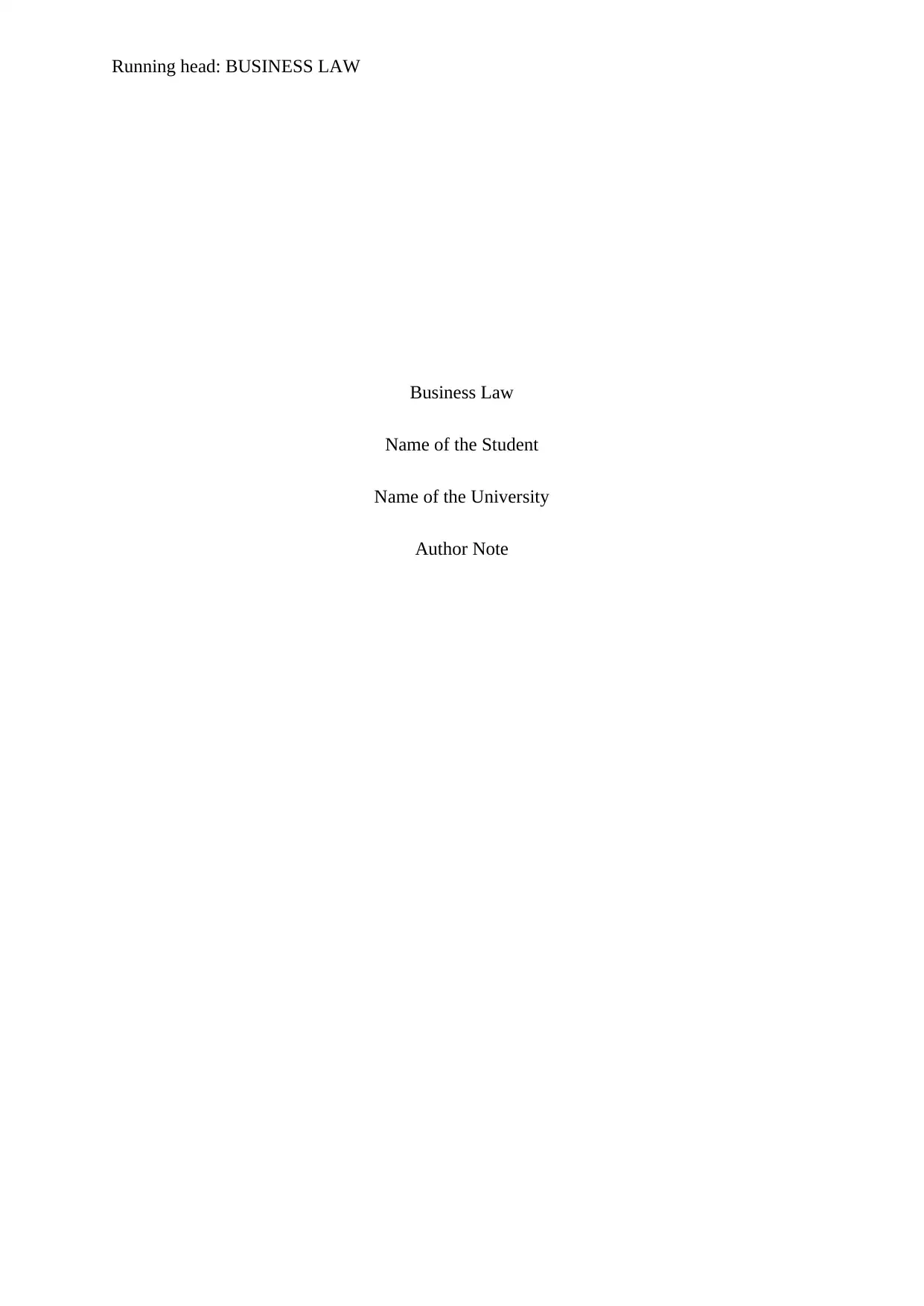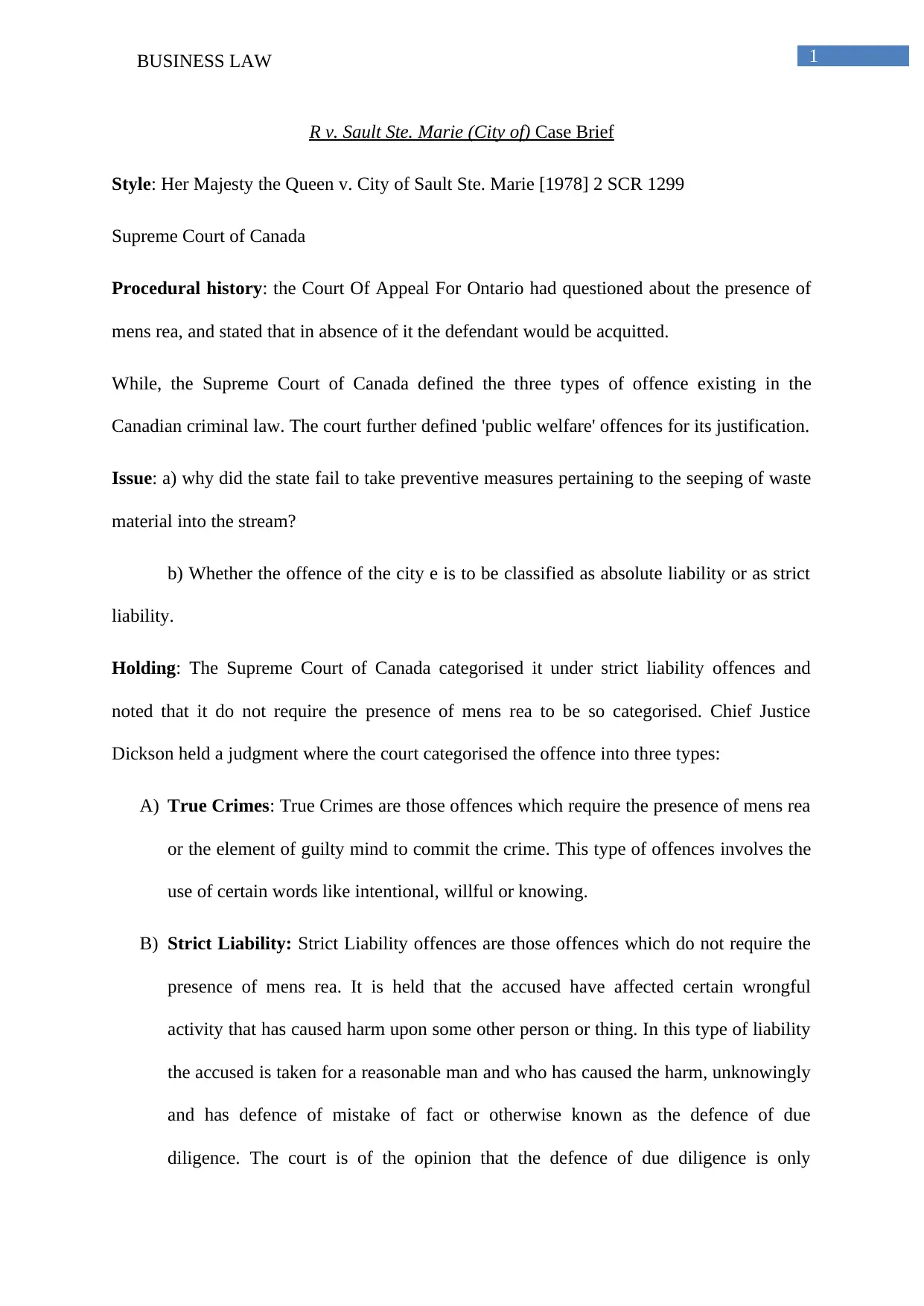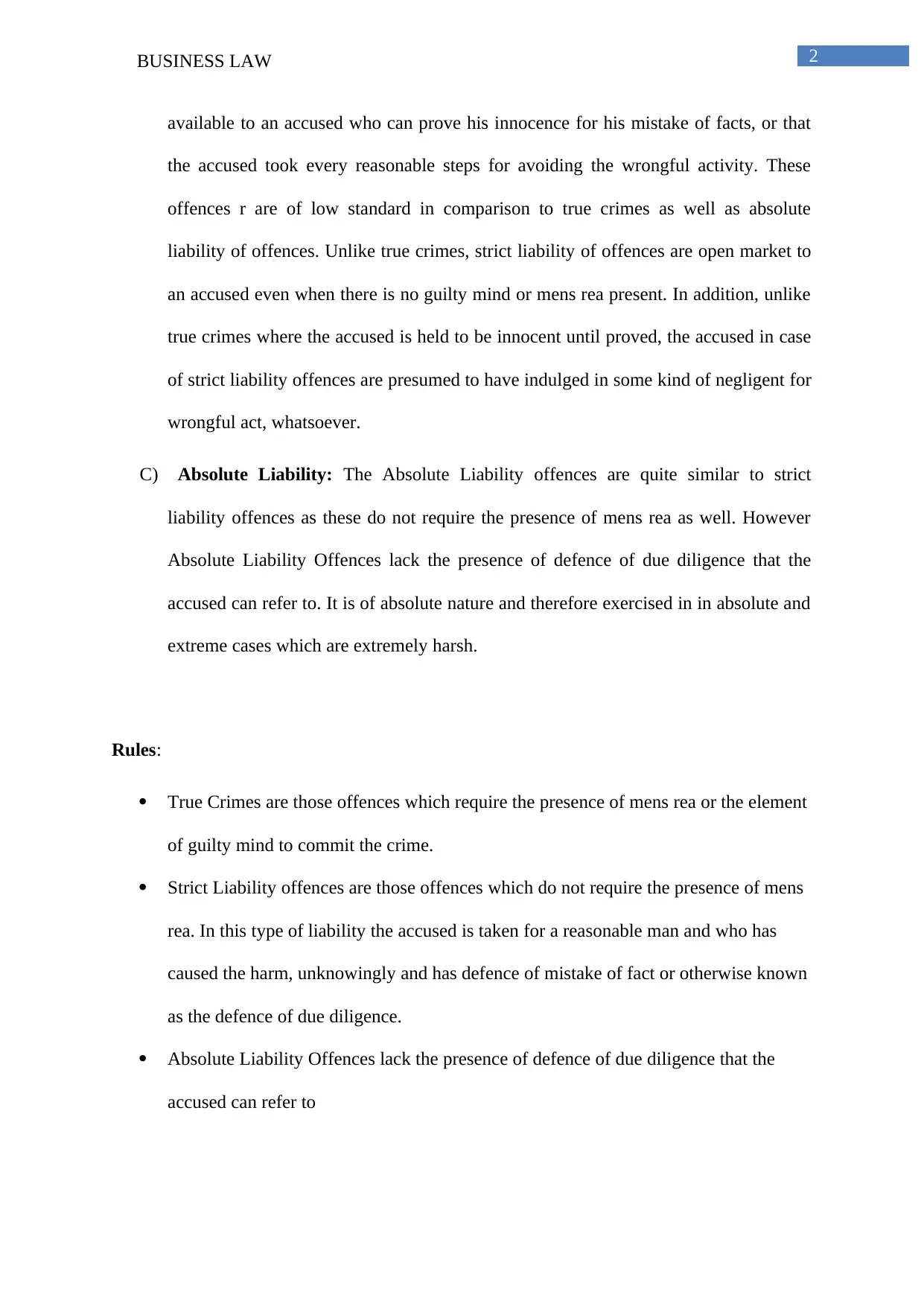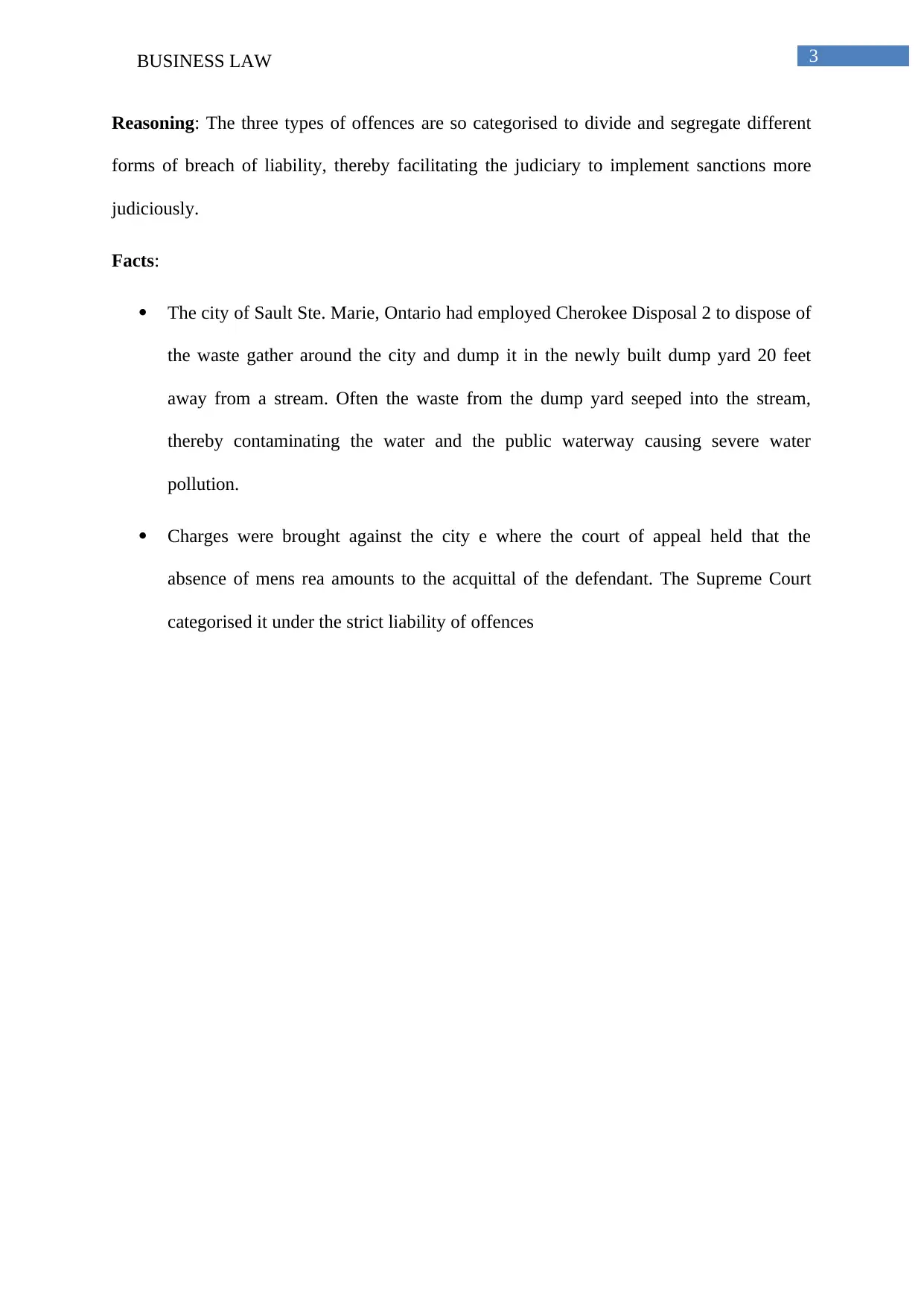R v. Sault Ste. Marie: Business Law Case Brief and Analysis
VerifiedAdded on 2023/01/13
|4
|774
|62
Case Study
AI Summary
The case brief analyzes R v. Sault Ste. Marie, a landmark case in Canadian business law concerning environmental pollution. The Supreme Court of Canada categorized the offense as strict liability, distinguishing it from true crimes (requiring mens rea) and absolute liability (lacking a due diligence defense). The case involved the City of Sault Ste. Marie, which was charged with polluting a stream due to waste disposal practices. The court established a three-tiered system of offenses, including true crimes, strict liability, and absolute liability. The judgment highlighted the importance of due diligence as a defense in strict liability cases, where the accused must demonstrate reasonable steps to avoid the wrongful activity. The case underscores the principles of liability in public welfare offenses and the application of these principles to environmental regulations. The case brief examines the procedural history, the issues at hand, the court's holding, and the reasoning behind the decision, making it a key resource for understanding strict liability in business law.
1 out of 4






![[object Object]](/_next/static/media/star-bottom.7253800d.svg)